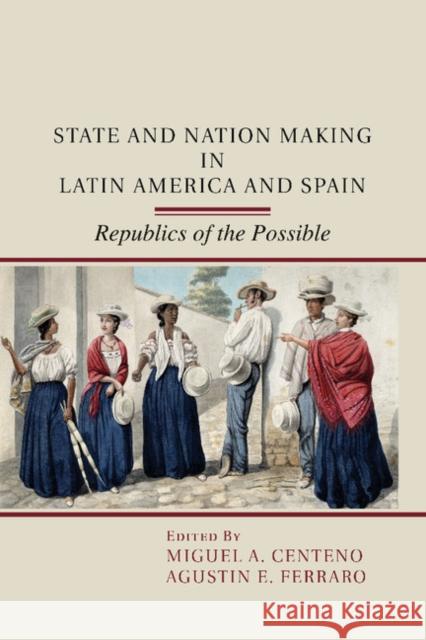State and Nation Making in Latin America and Spain: Volume 1 » książka
State and Nation Making in Latin America and Spain: Volume 1
ISBN-13: 9781107454392 / Angielski / Miękka / 2014 / 484 str.
State and Nation Making in Latin America and Spain: Volume 1
ISBN-13: 9781107454392 / Angielski / Miękka / 2014 / 484 str.
(netto: 240,20 VAT: 5%)
Najniższa cena z 30 dni: 140,99
ok. 16-18 dni roboczych.
Darmowa dostawa!
The growth of institutional capacity in the developing world has become a central theme in twenty-first-century social science. Many studies have shown that public institutions are an important (some would argue the most important) determinant of long-run rates of economic growth. This book argues that to understand the difficulties and pitfalls of state building in the contemporary world, it is necessary to analyze previous efforts to create institutional capacity in conflictive contexts. It provides a comprehensive analysis of the process of state and nation building in Latin America and Spain from independence to the 1930s. The book examines how Latin American countries and Spain tried to build modern and efficient state institutions for more than a century without much success. The chapters discuss key processes and challenges of state building. To what extent do historical legacies determine the capacity and reach of states? What are the obstacles to and paths toward the effective consolidation of public authority? How can states best design and create the institutions meant to provide the basic services now associated with citizenship? How can we put together notions of community that include diverse groups and cultures within a single identity, while also respecting the integrity of particular traditions? The Spanish and Latin American experience of the nineteenth century was arguably the first regional stage on which the organizational and political dilemmas that still haunt states were faced. This book provides an unprecedented perspective on the development and contemporary outcome of those state and nation building projects."











